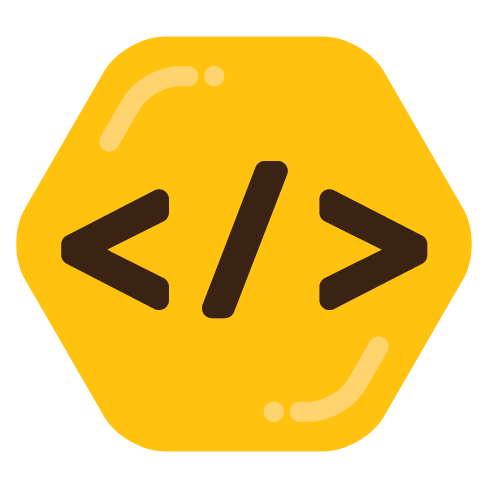After the (temporary) defederation announcement of earlier i checked the Lemmy repo to see if there was already a ticket on the federation limiting option like Mastodon’s that people mentioned Lemmy doesn’t yet have. Not only i didn’t find it, i also saw that there’s about 200+ open tickets of variable importance. Also saw that it’s maintained mostly by the two main devs, the difference in commits between them and even the next contributors is vast. This is normal and in other circumstances it’d grow organically, but considering the huge influx of users lately, which will likely take months to slow down, they just don’t have the same time to invest on this, and many things risk being neglected. I’m a sysadmin, haven’t coded anything big in at least a decade and a half beyond small helper scripts in Bash or Python, and haven’t ever touched Rust, so can’t help there, but maybe some of you Rust aficionados can give some time to help essentially all of Lemmy. The same can be said of Kbin of course, although that’s PHP, and there is exacerbated by it being just the single dev.


Going front-to-back
The entirety of your first paragraph is a humongous red flag. Your rationale makes sense, and it appears at each stage of the process you made logical decisions but the end result is disaster. You are evidently a knowledgeable and intelligent person, so I’ll ask you now to consider how old the underlying technologies on the web are, and how the web looked when they were written. Web frameworks exist to bridge the gap between languages and methods that are popular in the present day and the arcane mysteries of the world wide web. They bridge this gap with magic.
Now, this magic is a wonderful thing. It enables developers to make applications for the web in a way they’re familiar with and saves them having to think about the ‘web’ part which is:
However, if you’re trying to ‘learn programming’, starting with web dev is backwards in my opinion. You either choose to use a framework, and then you’re not really learning programming: you’re learning the framework. I always find this unrewarding, as it feels like the framework is doing all of the work and robbing me of the satisfaction. Furthermore, when you’re in the ‘beginner mindset’, you want to know how things work, you want to understand, you want to learn. Web frameworks are powerful when you focus on the ‘what’ and less on the ‘how’. Experienced developers have an understanding of ‘OK, this is what the framework abstracts for me, I’ll let it do its job and I’ll do mine’ and ‘Oh, I am not sure about this and it’s important I learn’. This is obviously a skill only gained by experience.
Furthermore, as you touched on, web frameworks go in-and-out of fashion and can have radically different approaches. With professional experience, you can apply your knowledge of one framework to learning another. As a beginner, I do not believe you have a broad enough understanding to be able to make connections between frameworks. This leads to your feeling of always being on the back-foot.
My recommendation for anyone who wants to learn programming in-and-of-itself, rather than to a specific end, is to start low-level. C was my traditional recommendation, though I may be altering this to Rust. C will never let you forget that you are programming a computer. This might sound ridiculous but it’s remarkably easy to lose track of and once you do, everything (in my head, at least) can get a bit esoteric and conceptual, and I find the ‘grounding’ deepens my sense of satisfaction working with computers.
My diagnosis as it stands is that you attempted to work from ‘abstract’ (web frameworks) to ‘concrete’ (learning how to program) and I’d always advise the reverse. Use C to gain a clear appreciation for how a programming language is altering 1s and 0s on your machine. Then build up with other abstractions, languages, and, in due time, frameworks.
Thinking differently
It sounds to me that, in your experience, you made some correct assumptions and some very incorrect assumptions. Correctly, you identified that structure, ease-of-understanding, and writing your code in a style that you’re comfortable with is optimal. Incorrectly, you assume:
Now, these aren’t merely incorrect assumptions, they’re incredibly incorrect. In the professional sphere, those who write code that is well-structured, easy-to-reason about, and is well documented are sparse but they are often highly valued (in good teams, at least). I was always taught, and still vehemently believe, that clarity and readability are absolutely the first priority. Speed of execution is a secondary concern. Terseness is not even a concern of mine at all.
Good code is easily understood by computers, as well as human beings. You are the first human being who has to understand your code. You should always write it in the way that is most easy for you to understand. It is a darn sight easier to optimise neat code, than it is to neaten optimised code.
I believe you’ve come to these conclusions because of your experience learning web development. I find web frameworks and JavaScript as a language to have syntax that is odd and inflexible. The pseudo-code you provided was in JavaScript and is reminiscent of many of the traits that mean that even experienced developers such as myself find it difficult to parse. There’s a reason callback hell is a meme. If you get the opportunity to use some other languages, I believe you’ll see there’s more flexibility in expressing yourself than maybe you’ve had the opportunity thus far.
Furthermore, I am reticent to comment on what is valued in the JS community, as I have never written anything of note with the language but looking at the two code snippets you provided, the first snippet smacks more of a ‘professional’ developer. It’s more modular, finely-grained, expressive.
Finally, if you’re still clinging onto the notion that coding demands a ‘particular’ way of thinking, I encourage you to look-up internet rants from people who know a lot about Java, Python, C++ etc. bashing Haskell. Haskell is a beautiful language that forces its developers to write in a style known as ‘functional programming’. I won’t go into depth about the differences and why functional programming is amazing but let’s put it this way:
In Haskell, you cannot do either of these things and it’s for the better.
Conclusions
I’m glad to hear you’re happy in your work but disappointed that you were unable to find a groove with programming. From what I’ve read, you absolutely seem to be the kind of thoughtful individual who should enjoy it.
I’d encourage you to start learning Rust. I am learning Rust at the moment myself. Pay close attention to references and memory management. When your material discusses memory concepts, such as the heap and the stack, ensure you develop an intuitive understanding of how they work. Don’t just view this as an important part of your development (one many developers neglect!) but as a window into what is happening on your machine. If your brain is anything like mine (and I think it might be), it’ll further your satisfaction.
Avoid Python. Python is tremendous is you want to use a tool that mandates Python. It will hinder your learning and force you into bad habits if you learn it early. Furthermore, when your project gets to any level of complexity, it’s going to be far more pain than its worth. I understand why Python is so popular in some non-programming domains but it has no appeal to me as anything more than a scripting language with boundless 3rd party libraries.
Look at functional programming, if you’re curious. This free book on Haskell is popular for a reason. Functional programming ideas are slowly making their way into all mainstream languages, for a very good reason. They force you to think differently, and it might be different in a way you prefer.
I wish I could come up with a reply that could properly state how thankful I am and how amazing and thorough of a response this is. Thank you so much for really pulling it apart and addressing each part of it.
I will admit, that when I started my journey, it was because someone had told me “You really only need to know some HTML & CSS for a web job” and figured “I’ve done that since I was a kid in the days of PHPBB, this is my way out of [insert dead-end job].” Coding wasn’t ever my goal, so now that I’m in a career and living less stressfully, I’m thinking of trying it again from the mindset of a hobby.
I love the idea of Rust, and I hear many people like it, and it seems much closer to the grindstone like you were talking about. I’ve started learning it a few times, but that was when it was newer and most of the training for it was for already-established developers, not for folks that were new to development, so it’d be neat to see what’s out there now. You can bet I’ll be doing some searching after this. I agree that the constantly moving nature of web development and having to treat each library as its own language was likely a large part of my downfall. I did aim to focus predominantly on Javascript since that was the core of all of it, but I still struggled quite a bit with that. I also got hooked on that C-based syntax, and struggled whenever I toyed with Python.
You’ve inspired me, I want to try Rust again. I can’t say I’d heard of ADHD Shadowing, but I did some quick research, and I think once I have some learning under my belt here, that could really help when actually trying to sit down and write code out.
Also, who’s the madman that decided to make a language without looping or re-assignable variables? lol
Thank you for being the encouragement that I needed, helping me through what things I could be doing better, and pointing out what kinds of concepts I should be prioritizing to gain a fuller understanding. I see a pretty full course at https://www.programiz.com/rust that I’m thinking I’m going to start going through from the ground up and see if I can take a new perspective on coding with.
If I could ask one more question of you…
When I last programmed anything, I determined that I did not enjoy it, that it was frustrating, and that I just wanted it to work. I want to shift my perspective and see it in a new light. Would you mind telling me what aspects of it that you like and what keeps you going when it is frustrating?
Thank you again for everything ♥